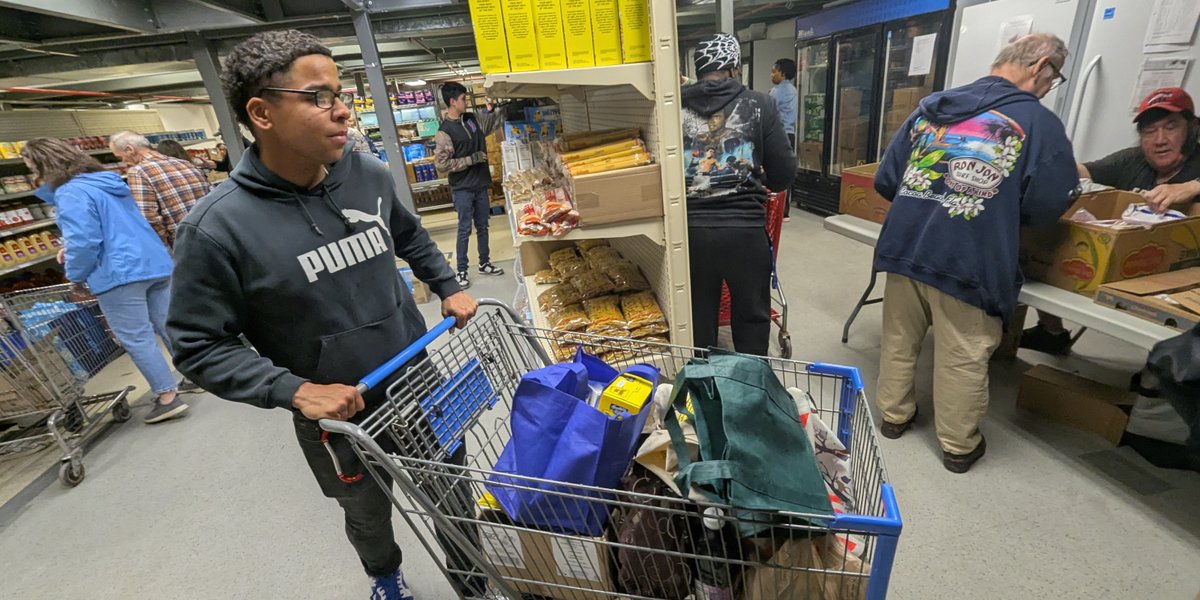When the government shutdown started, fear took hold. Thousands of military families faced unopened bills, empty shelves, and long lines outside food pantries near bases; emergency lifelines that appeared almost overnight.
"I’ve never seen anything like this," said Monica Bassett, founder and CEO of Stronghold Food Pantry. "We saw a 300 percent increase in need at our Fort Leavenworth location. In just ten days, 410 new families applied for help. That’s nearly nine times what we usually see in a quarter."
Bassett added, "This isn’t just about hunger. It’s about stability. Most families are doing everything right, like budgeting and cutting back. Even one delayed paycheck can push them straight into crisis."
Across the Armed Services YMCA network, the same story is unfolding. Sites nationwide have reported a 30 to 34 percent jump in food distribution. Some are spending an additional $60,000 a week just to keep shelves stocked.
Pre-Existing Insecurity Meets Shutdown Shock
Long before the shutdown, food insecurity remained a persistent struggle within the military community. The Military Family Advisory Network (MFAN) reports that one in five military and Veteran families experience food insecurity, while among active-duty families, the rate is one in four.
Frequent moves amplify the risk. More than 51 percent of families who relocated within the last two years reported running short on food or skipping meals to stretch paychecks.
Speaking about the issue, MFAN leaders shared a clear message:
"Food should never be a stressor for the families who defend our nation. When pay, allowances, or services are uncertain, families face impossible choices. Community support becomes a lifeline."
The increasing demand on military family food pantries highlights a shift: these resources are now a permanent necessity, not just a temporary safety net, underscoring the urgency as the crisis deepens.
Fear and Fragility Drive the Surge
"Even though pay was issued, fear of a delay drove a significant increase in demand for food and emergency assistance," said LaRonda Schenck Scott, Senior Director of Development for the Armed Services YMCA at Camp Pendleton. "Families live with deep financial vulnerability. Delayed or missed pay could be devastating."
The Pentagon’s emergency decision to use research funds made it possible for paychecks to go out on October 15. But this was only a temporary fix, not a real solution. If Congress does not act, uncertainty will return by November 1. Another surge at food pantries will follow.
To meet demand, many nonprofits have extended hours and launched mobile pantries. When supplies ran short, they distributed grocery gift cards.
"We can’t help but wonder how long we can sustain this if no resolution is reached," Scott said.
Beyond Groceries: Childcare, Utilities, and Emotional Strain
Hunger is only part of the struggle. Families are burdened by childcare costs, utilities, diapers, and escalating emotional strain.
Several Armed Services YMCA branches have waived childcare fees for affected families. At many sites, nearly 88 percent of staff are military spouses. Those serving others often feel the same stress.
“You are not alone,” Scott reminded families. “Asking for help is an act of strength, not weakness.”
Bassett agreed, saying, "It’s not just about food; it’s about readiness. A service member can’t focus on their mission when their family’s worrying about groceries."
Readiness, Retention, and the Cost of Hunger
The rise in military families relying on food pantries is not just a short-term issue; it is a warning sign. Ongoing shutdowns and funding gaps threaten both household security and military readiness and retention.
Organizations like MFAN, Stronghold Food Pantry, and the Armed Services YMCA are urging lawmakers to prioritize actionable steps to ensure military families’ well-being. Many are looking to lawmakers to guarantee pay continuity to shield families from financial instability during government shutdowns.
There are also calls to expand the Basic Needs Allowance to cover more families, making sure no one goes without essential resources, as well as to fund on-base food pantries effectively to meet ongoing demands. These measures can transform concern into tangible support.
“Whether families need food, childcare, or simply reassurance, we’re here,” Scott said. “But no nonprofit can do this alone forever.”
For now, lines at military family food pantries only grow longer. Without lasting protections, many of the nation’s most dedicated families face the very real threat of hunger every time a paycheck is threatened.
Suggested reads:




